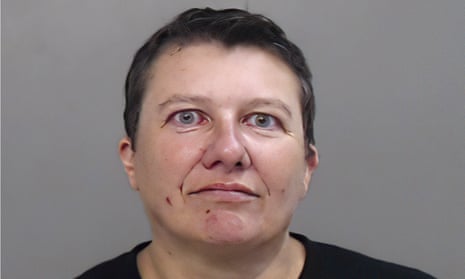A dual citizen of France and Canada has pleaded guilty to mailing ricin to Donald Trump.
Pascale Ferrier, 55, admitted to making the poison at her residence in Quebec in September 2020, the US Department of Justice announced.
Ferrier placed the ricin in envelopes that included letters addressed to Trump at the White House and to eight Texas law enforcement officials associated with detention facilities where Ferrier had been held.
Ricin, a deadly poison, can be made from waste material produced in the processing of castor beans. It can be produced as a powder, mist or liquid, or in pellet form.
In each letter, Ferrier wrote that she included a “special gift”, adding that if it “doesn’t work, I will find a better recipe for another poison”. She also wrote: “or I might use my gun when I will be able to come” and concluded: “Enjoy.”
According to court documents, the letter to Trump also stated: “You ruin USA and lead them to disaster. I have US cousins, then I don’t want the next four years with you as president. Give up and remove your application for this election.”
The nine envelopes were intercepted in Texas and Washington DC. The Secret Service informed the FBI about the letter to Trump.
“Special weapons of mass destruction coordinators and hazardous material experts were required to deploy to various locations where the letters were received, due to the presence of the ricin toxin powder in the envelopes,” court documents said.
The letters were sent to a facility in Maryland for further testing.
Shortly after the letters were intercepted, Ferrier drove to a border crossing in Buffalo, New York, where she was arrested. According to court documents, asked by border officials if she was OK, Ferrier said she was wanted by the FBI over the ricin letters.
Authorities found in her car a loaded firearm, hundreds of rounds of ammunition, two knives, a stun gun, pepper spray, a truncheon and a false ID document.
Ferrier pleaded guilty to violating federal prohibitions with respect to biological weapons. As part of a plea deal, she is expected to serve 262 months in prison. A sentencing hearing is scheduled for 26 April.
The case comes amid a concerning rise in political violence towards lawmakers which experts warn endangers the health of US democracy.
“There is no place for political violence in our country, and no excuse for threatening public officials or endangering our public servants,” the US attorney for the District of Columbia, Matthew M Graves, said in a statement.
“We hope this resolution will serve as a warning that using our mail system to send a toxic substance and other threats of this type will cost you your freedom for many years.”
Last November Joe Biden urged Americans to take a stand against political violence.
“We are facing a defining moment,” the president said. “We must with one overwhelming, unified voice speak, as a country, and say there’s no place for voter intimidation or political violence in America.”
This article was amended on 27 January 2023. An earlier version said that Pascale Ferrier was French-Canadian. This has been clarified; Ferrier is a dual citizen of France and Canada.
